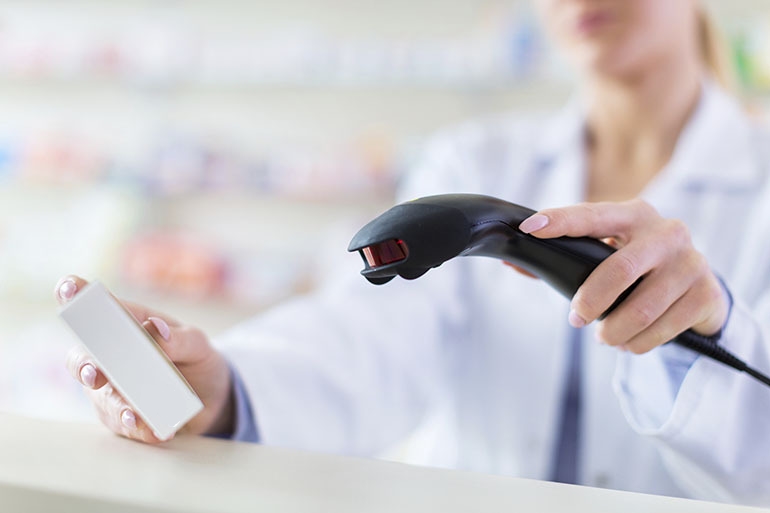
A recent study showed less-than-desirable adherence by hospital pharmacists to the verification system envisaged in the Falsified Medicines Directive, with scanning rates and acting on alerts below expectations.
Now, a follow-up study by the same team has explored the reasons for the lack of compliance with the requirements, concluding that small changes to the alerting system can have profound impacts on dispenser behaviour.
Previously, a pilot study in a UK National Health Service (NHS) teaching hospital found that despite basic training, one in five serialized, coded packs were not scanned at the point of dispense, as will be mandated by the FMD delegated regulation when it comes into force in 2019.
That meant that only around a third of test packs programmed to deliver a counterfeit alert – and around two-thirds of expired or recalled drugs - were identified the dispenser. In some cases the rogue drug packs were scanned, but the alert was not acted upon and they were not quarantined.
In an attempt to see how this situation could be improved, a team of researchers led by Bernard Naughton of Keele University used a survey approach to try to identify how dispensers found the verification process – and suggest ways to improve authentication rates.
Their analysis identifies a number of important improvements which are worth considering in an effort to improve technological compliance, says Naughton. On the plus side, respondents said they found the authentication platform – set up by Aegate and the only system in place in the UK at the time of the research – was rapid and user friendly.
"Participants identified concern with the similarity of warning messaging which may have had an impact on the decision to quarantine and may have contributed to the suboptimal detection rates seen in previous publications relating to the service evaluation study," say the authors of the study, which is published in the British Medical Journal.
Sounding an audible signal if a counterfeit medicine is encountered could make it much harder to ignore alerts, they suggested, as a pop-up warning is not enough to prompt action in the hectic hospital environment and a noise may introduce peer pressure to respond. They also suggest making it mandatory to complete an 'action taken' documentation process.
"Considering that serialisation and verification with or without authentication will affect EU hospital pharmacies and is likely to affect US hospitals wishing to wholesale supply, it is important to gauge its current appropriateness and identify improvements in this valuable patient safety technology," write the authors.
They recommend that authentication technology providers test their technology in a closed loop and real-life environment prior to national implementation to ensure that operators respond appropriately to the messaging being displayed.
"This paper adds weight to the argument that pharmacy compliance to the FMD regulated authentication is unlikely to be absolute from the offset," Naughton told SecuringIndustry.com.
Hospitals will differ in the services they provide and the way in which they operate, he suggested, so some may require a non-standard solution to achieve maximum compliance. Either way, close attention needs to be given to ensure adequate training in the systems.
"As each EU nation will select a verification/authentication provider, it will be important to assess the effectiveness of the proposed technology within the context of each setting," said Naughton.
©
SecuringIndustry.com





